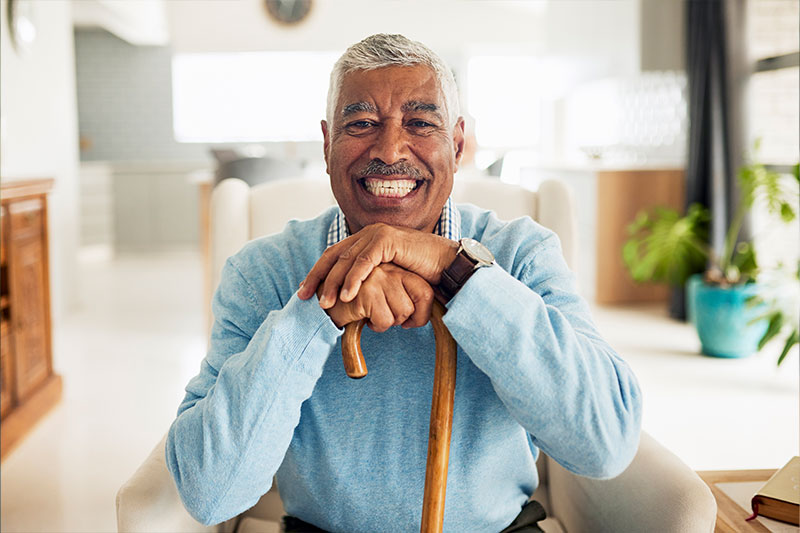Practical Tips to Address the Fear of Falling in Older Adults

As we age, it is natural to become more cautious about the risk of falling. However, for some older adults, the fear of falling can become paralyzing, causing a decrease in physical activity, social engagement, and overall quality of life. It’s important to address this fear head-on and empower older adults to live confidently and fearlessly. Here are some valuable strategies to help those you love overcome anxiety about falling:
- Stay Active: Regular physical activity improves strength and balance while boosting confidence and decreasing the danger of falling. Encourage older loved ones to take part in activities they enjoy, whether it’s walking, swimming, yoga, or tai chi. It is never too late to begin reaping the advantages of an active lifestyle. Group exercise classes specifically designed for older adults can provide social interaction and motivation to stay active.
- Establish a Support Network: Social isolation can exacerbate the fear of falling. Encourage older loved ones to remain connected with family, friends, and community groups. Having a strong support network can offer encouragement, emotional support, and assistance when needed. Consider organizing regular social outings or activities to help combat loneliness and foster a sense of belonging.
- Use Assistive Devices: For people with mobility issues, assistive devices such as canes, walkers, or stairlifts can offer added stability and confidence. Encourage older adults to use these devices as needed to maintain their safety and independence. Proper training on how to use assistive devices is essential to ensure their effectiveness.
- Gain Education: Knowing the factors that contribute to falls and the steps that can be taken to prevent them is crucial. By educating themselves about strength, balance, and mobility exercises, older adults can feel more equipped to take control of their physical health. Learning about proper nutrition, hydration, and medication management can also play a significant role in fall prevention and general well-being.
- Practice Mindfulness: Mindfulness techniques such as deep breathing, meditation, and visualization often helps people manage anxiety and fear. By concentrating on the present moment and cultivating a sense of calm, older adults can reduce stress and approach life with greater self-assurance. Encourage loved ones to incorporate mindfulness practices into their daily routine for improved emotional well-being.
- Modify the Home: Making simple modifications to the home environment can significantly decrease the likelihood of falls. Installing grab bars in the bathroom, improving lighting, securing rugs, and removing clutter are just a few examples of changes that can enhance safety and provide peace of mind. Consider conducting a home safety assessment to determine potential hazards and implement appropriate modifications.
- Seek Professional Help: If the fear of falling is significantly impacting a loved one’s daily life, encourage them to seek support from a healthcare professional. A physical therapist, occupational therapist, or psychologist can offer personalized guidance and strategies for overcoming fear and improving confidence. These professionals can also address any underlying physical or mental health issues contributing to the fear of falling.
Sage Home Care can assist too! Email or call us at 1-800-578-4554 for details on fall prevention and other senior services in Carmel, Katonah, Brewster, together with surrounding areas. Our team of experienced professionals is dedicated to promoting the health, safety, and independence of older adults. From tips for home modifications to personalized support, we provide comprehensive solutions to meet the unique needs of each individual. Don’t let the fear of falling hold back someone you love—take proactive steps now to help them live life to the fullest.

